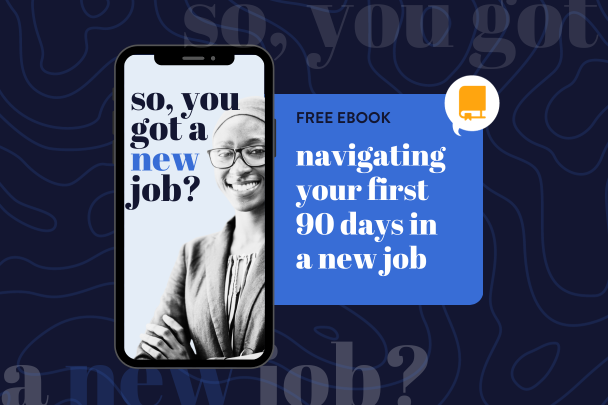I get really nervous during interviews. Do you have any strategies I can use to relax before and during the interview? – Stephanie D.
Everyone gets nervous, everyone. Even the most skilled performers still get the butterflies before the curtain goes up. At age 75, Henry Fonda still used to throw up each night before a stage performance! But once the first step on stage was taken, the nerves seemed to disappear.
There are two things that will take nerves away before an interview… well maybe three… 1) being prepared 2) relaxation techniques 3) practice.
BEING PREPARED:
We’ve all had that dream where we’re preparing for the final exam and haven’t studied. It’s a terrible feeling — so is going to an interview where you know little about the company, the industry and the position itself. The more informed and prepared you are the less nervous you will be.
Practical Tip # 1:
Before any interview you need to do your research on the company. Look at their website for starters, then research their competitors, Google them to see what’s been written about them in the press. Then learn as much as you can about the position, especially if it’s a new type of position for you. The more prepared you are the less nervous you should be.
Practical Tip # 2:
If you don’t understand something, don’t allow that to cause you unnecessary stress in the interview. Go ahead and ask a question! ”I came across this on your website, and I wasn’t quite sure how that worked. Could you explain it in more detail?” It’s perfectly fine to ask questions. Actually, interviewers prefer it. It shows that you’ve done your homework, and that you’re actively engaged, not only in the interview, but also in pursuing their open position.
RELAXATION TECHNIQUES:
Actors learn to neutralize and relax their bodies so that they can get rid of their own tensions and personal physical idiosyncrasies in order to authentically create a character from a blank slate. Like anything, the more you do it, the easier it will become. Since nerves are a big thing to overcome, you may want to try to incorporate a relaxation practice into your daily routine. The benefits will surely be seen in and out of the interview room.
Practical Tip # 3:
Here is some helpful information on various methods of relaxation from meditation to yoga as well as the progressive muscle relaxation used in the beginning of many acting classes.
PRACTICE:
Again, the more you do anything, the better you become at it! The same is true for interviewing. The more job interviews you go on, the more you learn from the behavioral cues the interviewer offers in response to your answers. Did they seem to get uncomfortable when you said something negative about your former employer? Did they have a hard time staying focused on your answers because your responses were too long and tangential?
Practical Tip # 4:
It may be difficult in this economy to gain the experience of multiple interviews in a short amount of time, but you should rehearse your answers as much as possible. I don’t mean word for word but in regards to the overall content. You must be able to speak effectively and concisely about each position you held and what your achievements were.
Practical Tip # 5:
Have a friend interview you for practice. Find different ways of phrasing your answers and get their feedback. Even if it’s not a “real” interview situation, the simple repetition of answering questions about your resume will build something similar to muscle memory — the way actors remember lines to a play. That way you are not only well versed about the company you’re interviewing with but about yourself, your experiences and accomplishments. You’ll be able to answer questions more quickly, with greater ease, and with more confidence!
STOP PRESSURING YOURSELF!
Now… getting back to Henry Fonda, there are a few more parallels we can draw on from our actor friends.
First, actors often report booking the job when they really didn’t want to go to the audition or care if they got the job in the first place. Why? Because they didn’t put pressure on themselves and overhype the situation before they even walked in the room.
Casting directors sense the desperation in actors, and those actors, as talented as they may be, will never book the job. They’re so worried about getting the job and have put so much pressure on themselves that their audition is forced and unnatural- the very thing you cannot be as an actor. Put another way, the actors that book don’t psyche themselves out, which we all know is very easy to do. Remember, hiring managers, like casting directors, want you to be right for the job. They want to have found “the one” so they can stop their search. Trust yourself! If you feel nervous walking in the room, give yourself the most common adjustment a casting director gives an actor after a first read, “OK, now just have a conversation.”
And finally, once the audition is over, you must let it go! Actors always beat themselves up for not having said a line a certain way, not hitting the laugh line or for not having worn that sexier shirt. But once it’s over, it’s over and no amount of wishing and self-deprecation will change what happened in that room. As hard as it is, you must train yourself to let it go. The same holds true of interviewing. The more you beat yourself up for something you said or didn’t say in the interview room and obsess about it, the more it will become a point of stress and pressure in the next interview situation, and the more nervous you’ll become about not performing well in the room. So, learn from the mistake, evaluate your performance, and take note of how you could have done better! But then, forget about it and move on to the next. Just like auditions, there’s always another one!









